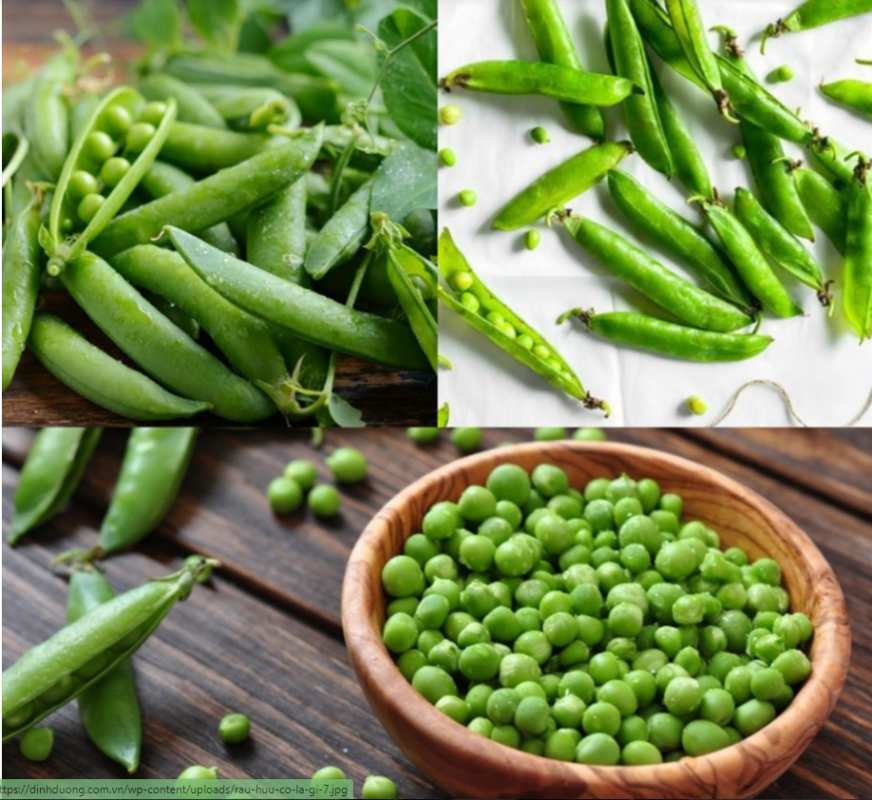Blog
Organic Vegetables: What Are They? Learn the Benefits and How to Choose Clean Produce
Organic vegetables, grown without pesticides and chemical fertilizers, offer numerous health benefits and contribute to environmental protection. This article from Dayyad.com will help you understand organic vegetables and how to select clean produce to safeguard your health and your family’s.
What are Organic Vegetables?
Key points in the article:
- Organic vegetables are grown using natural methods, without pesticides and chemical fertilizers.
- Organic vegetables are more nutritious and contain more antioxidants compared to conventional vegetables.
- Selecting clean produce is crucial to ensure you’re buying the highest-quality organic vegetables.
Characteristics of Organic Vegetables
Organic vegetables are grown naturally without the use of pesticides and chemical fertilizers. This method ensures that organic vegetables are of superior quality, rich in nutrients, and safe for consumption.
03 Key Benefits of Organic Farming
- Rich in Nutrients: Organic vegetables have higher concentrations of vitamins, minerals, and antioxidants compared to conventional vegetables. They are also rich in fiber, aiding in digestion.
- Free from Harmful Chemicals: Organic vegetables are grown without pesticides and chemical fertilizers, reducing exposure to harmful chemicals that can cause health issues.
- Environmental Protection: Organic farming minimizes soil, water, and air pollution, as well as energy consumption and carbon emissions.

The Difference Between Organic and Conventional Vegetables
Organic and conventional vegetables differ in farming methods and quality:
- Organic Vegetables: Grown naturally without pesticides, chemical fertilizers, or genetically modified organisms (GMOs). Organic vegetables are generally of higher quality and provide essential nutrients.
- Conventional Vegetables: Often treated with chemicals like fertilizers and pesticides to control insects and promote growth. Conventional vegetables may contain residues of harmful chemicals.

How to Choose Clean Produce
When purchasing organic vegetables, look for organic certification labels on the product, such as Organic Jas (Japan), USDA (United States Department of Agriculture), and EU Organic (European Union). Additionally, research the product source and buy from reputable stores.
Common Types of Organic Vegetables
Popular organic vegetables in Vietnam include:
- Chinese Cabbage: Rich in vitamins, antioxidants, and beneficial for heart health and cancer prevention.
- Spinach: High in vitamin K, supports blood clotting and bone health.
- Broccoli: Rich in vitamin C, boosts the immune system and fights infections.
- Lentils: Rich in antioxidants, protects the skin from sun damage and aging.

Conclusion
Organic vegetables, grown naturally without chemicals, not only offer superior nutrition but also contribute to environmental sustainability. When choosing organic produce, look for certified products and purchase from trusted sources. Opting for organic vegetables ensures a healthier and safer diet for you and your family.

Frequently Asked Questions About Organic Vegetables
What are Organic Vegetables? Organic vegetables are grown naturally without pesticides, chemical fertilizers, or GMOs, with special care to avoid harmful chemicals and negative impacts on human health and the environment.
Characteristics of Organic Farming: Organic farming involves natural cultivation methods without pesticides, chemical fertilizers, or GMOs, focusing on environmental protection and maintaining natural balance during plant growth.
What are the Benefits of Organic Vegetables? Organic vegetables are nutrient-rich, contain antioxidants, and are safer than conventional vegetables, minimizing exposure to harmful chemicals.
Difference Between Organic and Conventional Vegetables: Organic vegetables are grown naturally without pesticides or chemical fertilizers, whereas conventional vegetables may contain residues of harmful chemicals from farming practices.

How to Choose Clean Produce: Look for certified organic products, read product labels, and shop at reputable stores or local farms for organic produce.
Common Types of Organic Vegetables: Popular organic vegetables include lettuce, kale, tomatoes, peppers, beans, carrots, and zucchini. These vegetables are highly nutritious and can be consumed raw or cooked in various dishes.

